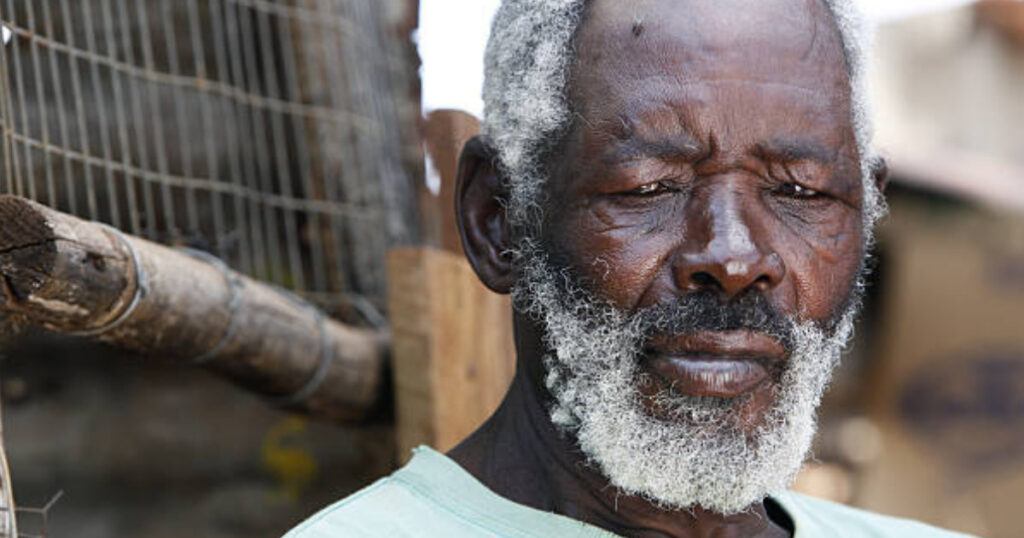Poverty and Mental Health Problems: What’s the Connection?

Mental health issues are a pressing concern worldwide, affecting millions of people from all walks of life. However, poverty is an often overlooked factor in developing and exacerbating mental health problems. The connection between poverty and mental health is complex and multifaceted, but it is undeniable.
Poverty as a Catalyst for Psychological Stress
Poverty is an undeniable source of psychological stress, creating a relentless burden that can weigh heavily on an individual’s mental well-being. The constant struggle to make ends meet, pay bills, and provide for one’s family can lead to chronic stress, which, if left unmanaged, can trigger or aggravate various mental health issues.
Financial Insecurity and Anxiety
One of the most palpable consequences of poverty is the gnawing sense of financial insecurity it instills. The persistent fear of being unable to meet basic needs, such as food, shelter, and healthcare, fuels anxiety. This chronic financial anxiety can manifest as generalized anxiety disorder (GAD) or panic disorder, adversely affecting a person’s ability to concentrate, sleep, and enjoy life.
Depression and the Cycle of Poverty
The relationship between poverty and depression is well documented. Individuals living in impoverished conditions are more susceptible to developing depressive disorders. Feelings of hopelessness and helplessness can become pervasive, trapping individuals in a cycle where the burdens of poverty exacerbate their mental health issues. Eventually, depression can hinder efforts to escape poverty by impairing productivity and motivation.
Childhood Adversity and Long-term Impact
Poverty experienced during childhood can have a profound and enduring impact on mental health. Children growing up in impoverished households are more likely to experience adversity such as neglect, maltreatment, and unstable living conditions. These early traumas can lead to conditions like post-traumatic stress disorder (PTSD) and contribute to long-term emotional challenges in adulthood. Breaking this cycle of poverty-related adversity is essential for safeguarding the mental well-being of future generations.
The Healthcare Gap and Mental Health
Access to quality healthcare is a fundamental human right, yet poverty is a formidable barrier to receiving adequate medical attention.
Mental Healthcare Accessibility
Poverty restricts access to mental healthcare services, compounding the suffering of individuals grappling with mental health issues. The cost of therapy, oral treatments, and even transportation to healthcare facilities can be insurmountable for impoverished people. Consequently, untreated mental health conditions can persist and worsen over time.
Stigma and Reluctance to Seek Help
The stigma surrounding mental health issues is an additional obstacle disproportionately affecting impoverished individuals. The fear of being judged or misunderstood can deter individuals from seeking professional help, causing their mental health issues to fester.
Overcoming this stigma is essential for creating an environment where individuals from all socioeconomic backgrounds feel comfortable seeking the care they need.
The Vicious Cycle: Physical and Mental Health
Physical and mental health are intrinsically linked, and the cycle of poverty can take a toll on both. Limited access to healthcare means that chronic physical conditions often go untreated, further exacerbating mental health issues.
Additionally, individuals struggling with poor mental health may be less motivated to engage in healthy behaviors, such as exercise and nutrition, which can lead to physical health problems. This interconnectedness underscores the importance of holistic healthcare approaches that address mental and physical well-being.
Education Disparities and Their Psychological Impact
Access to quality education is often heralded as a means of escaping poverty. However, educational disparities can perpetuate and intensify the connection between poverty and mental health.
Limited Educational Resources
Children growing up in poverty often attend underfunded schools with limited access to educational resources. These limitations can hinder their cognitive and emotional development. As a result, they may struggle academically, leading to feelings of inadequacy and low self-esteem, which can contribute to conditions like depression and anxiety.
Socioeconomic Achievement Gap
The socioeconomic achievement gap is a well-documented phenomenon wherein individuals from impoverished backgrounds face barriers that hinder their academic success. This gap in educational attainment can lead to persistent feelings of frustration and hopelessness, which are detrimental to mental health.
Bridging this gap through targeted interventions is crucial to breaking the cycle of poverty and its associated mental health challenges.
Social Isolation and Loneliness in Poverty

Social connections and support networks are vital for emotional well-being. Yet poverty can lead to social isolation and a pervasive sense of loneliness.
Social Stigma and Isolation
Poverty is often stigmatized in society, leading to the isolation of individuals and families living in impoverished conditions. The fear of being judged or rejected can result in social withdrawal, which, over time, can intensify feelings of loneliness and depression.
Lack of Social Support Networks
Social support plays a crucial role in buffering the effects of stress and adversity. However, impoverished individuals may have limited access to such support networks. They may lack the resources to engage in social activities or maintain relationships, leading to increased isolation and hopelessness.
The Digital Divide
The digital divide exacerbates social isolation among impoverished individuals in today’s interconnected world. Limited access to the internet and digital devices can cut them off from the social connections and resources available online, further isolating them from opportunities for support and engagement.
Policy and Advocacy for Change
Addressing the complex interplay between poverty and mental health requires a multifaceted approach, encompassing economic policies, healthcare reform, educational interventions, and social change.
Targeted Mental Health Services
To address the mental health challenges associated with poverty, policymakers must prioritize allocating resources for accessible mental health services. Initiatives that offer low-cost or free counseling and therapy services can be instrumental in providing support to those who need it most.
Education Equity
Efforts to reduce educational disparities should be at the forefront of the battle against poverty-related mental health issues. Implementing policies that provide equal educational opportunities and resources to all students, regardless of socioeconomic background, is crucial for improving mental health outcomes.
Reducing Stigma
Reducing the stigma surrounding poverty and mental health is vital to fostering a more inclusive and supportive society. Public awareness campaigns, educational programs, and advocacy efforts can help break down these barriers and encourage individuals to seek help when needed.
Community Outreach
Community-based initiatives that focus on providing social support and reducing social isolation can have a significant impact on the mental well-being of impoverished individuals. Encouraging community engagement and offering resources for social inclusion can help combat the effects of poverty on mental health.
Reminder
The connection between poverty and mental health is a complex and pervasive issue that affects millions of individuals worldwide. Recognizing and addressing this connection is essential for creating a more equitable and compassionate society, where every individual, regardless of socioeconomic status, can achieve mental well-being. Through targeted policies, increased awareness, and collective action, we can work to break the cycle of poverty and its impact on mental health.
Bear in mind that mental health problems can affect anyone regardless of gender, age, and economic status. If you or anyone you know is struggling with anxiety or depression, it is advisable to seek professional help and support. You can contact Mindshift Psychological Services for their treatment programs for anxiety, depression, and PTSD. You can contact them at (714) 584-9700 to schedule an appointment.



